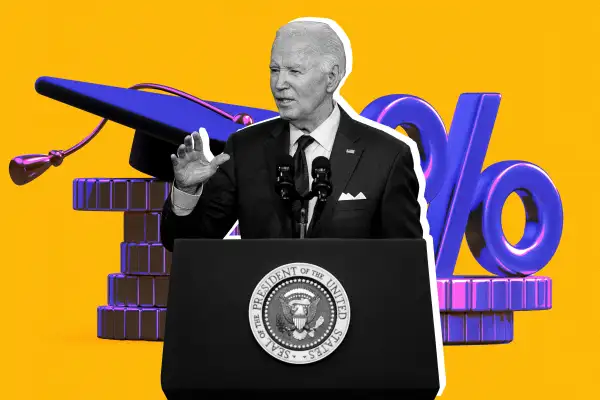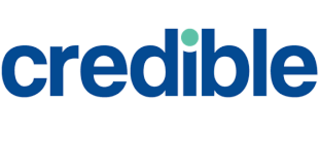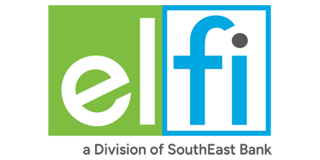Biden Tries Again for Student Loan Forgiveness With a New Plan Targeting 8 Million Borrowers

Despite stiff legal opposition, the Biden administration is forging ahead with a new plan to cancel federal student loans for millions of borrowers.
The Education Department released new forgiveness rules Friday as part of its latest attempt at broad student debt cancellation. The agency says the plan, if finalized, would provide one-time debt cancellation for about 8 million borrowers who are experiencing financial hardship. The agency also plans to create a new "holistic" hardship application that could provide relief to borrowers for "generations to come."
"We're serious about fixing our country's broken student loan system," Education Secretary Miguel Cardona said on a call with reporters. "For far too long, our student loan system has made it too difficult for borrowers experiencing hardships."
President Joe Biden's initial student loan forgiveness plan, which sought up to $20,000 of forgiveness per borrower, was struck down last year by the Supreme Court. Soon after, the Biden administration said it would try again using separate legal justification. The new forgiveness plan, known as "Plan B," underwent an official rulemaking process that started in February.
Plan B was much narrower the first attempt, but it still originally called for providing $150 billion of forgiveness to some 30 million borrowers. It identified specific groups of borrowers, like those dealing with runaway interest or those who'd been in repayment for decades, for partial or full debt cancellation. Then a lawsuit from Republican-led states halted Plan B before it got off the ground. While that case is currently being battled out in a federal court in Missouri, the Education Department is moving forward with a portion of the plan that it believes is not subject to the federal court injunction that already blocked it.
Call it Plan C.
Who may qualify for student loan forgiveness due to hardship
The current forgiveness rules are focused on providing debt relief to borrowers who are experiencing financial hardship. Officials are defining that in two ways.
The first focuses on borrowers who, officials say, have been identified as being at high risk of defaulting on their student loans within the next two years, based on a predictive model that factors in their income, debt loads, Pell grant status and more. Default happens when a borrower misses nine months of payments and it comes with several painful consequences including wage garnishment.
About 6 million borrowers could receive forgiveness automatically based on data the Education Department already has through this avenue.
In other cases, the department wants to use an application for borrowers to demonstrate a financial hardship. Officials expect 2 million current borrowers could qualify for forgiveness this way. Future borrowers may qualify as well because the application is intended to be ongoing to provide forgiveness for "generations to come," the department said.
The application process would "holistically assess" an applicant's situation, factoring in whether the loan balance has grown over time, the borrower's risk of default — as well as other financial burdens like medical debt, child care costs and more. If another repayment plan doesn't address the situation, the borrower's loans may be forgiven in total.
Legal challenges and timeline of relief
With the presidential election quickly approaching, senior department officials told reporters Thursday that the administration is working to provide as much student debt relief as possible, as fast as possible.
However, the department's rules have not been officially published in the Federal Register. It plans to meet this requirement "in the coming weeks." After that, the rules must undergo a 30-day public comment period before being finalized, which the department doesn't expect to wrap up until 2025.
Of course, this timeline extends far past the election on Nov. 5. The next administration does not formally take office until Jan. 20, 2025. It's unclear whether the Education Department would be able to provide any relief before that date. And if the next administration does not agree with the rules, the forgiveness plan would likely fall apart.
Fresh lawsuits are another major impediment. Given that two federal courts have already issued injunctions to halt Biden's Plan B, it seems probable that these rules — which are based on a portion of Plan B — will face major legal hurdles before they're implemented.
"We remain unapologetic in our fight to make higher education more affordable and accessible," Cardona said.
More from Money:
Why the FAFSA Isn't Opening in October Like Usual This Year
As Student Loan 'On-Ramp' Ends, Missed Payments Will Once Again Hurt Your Credit
An 'Affordable' College Degree Now Means Not Going Into Debt, According to Parents






